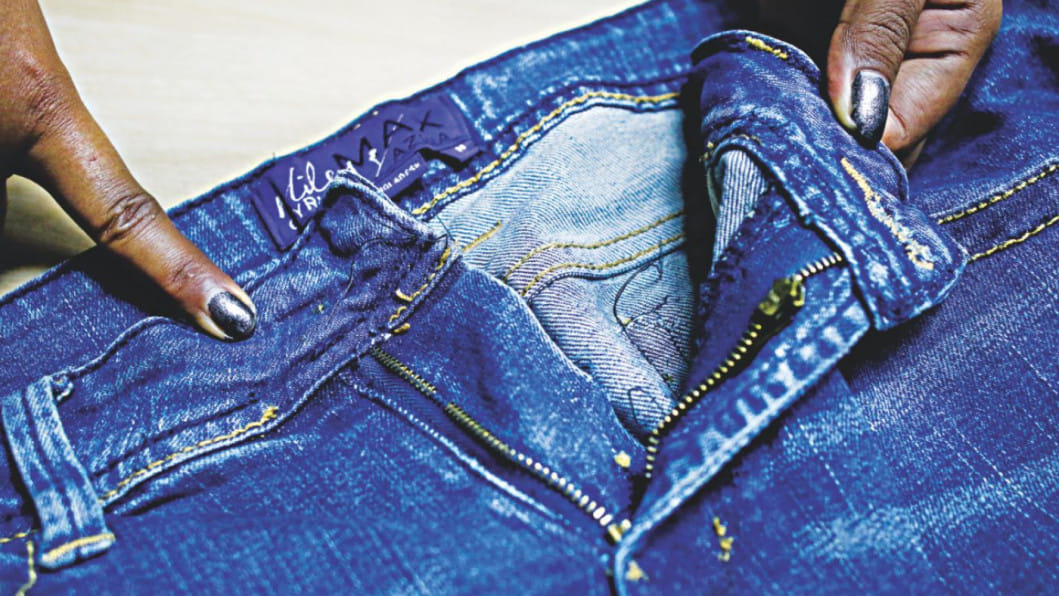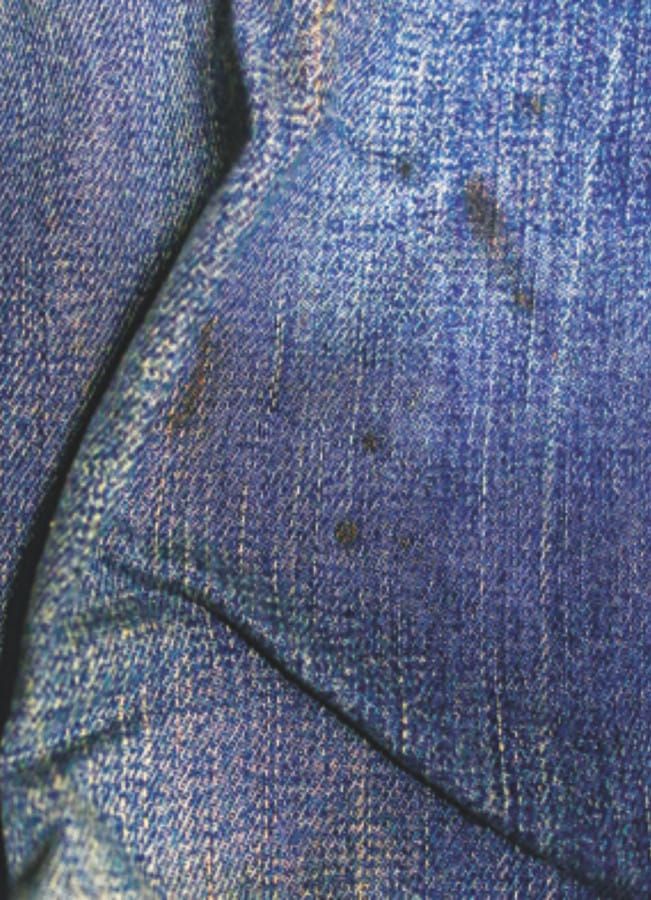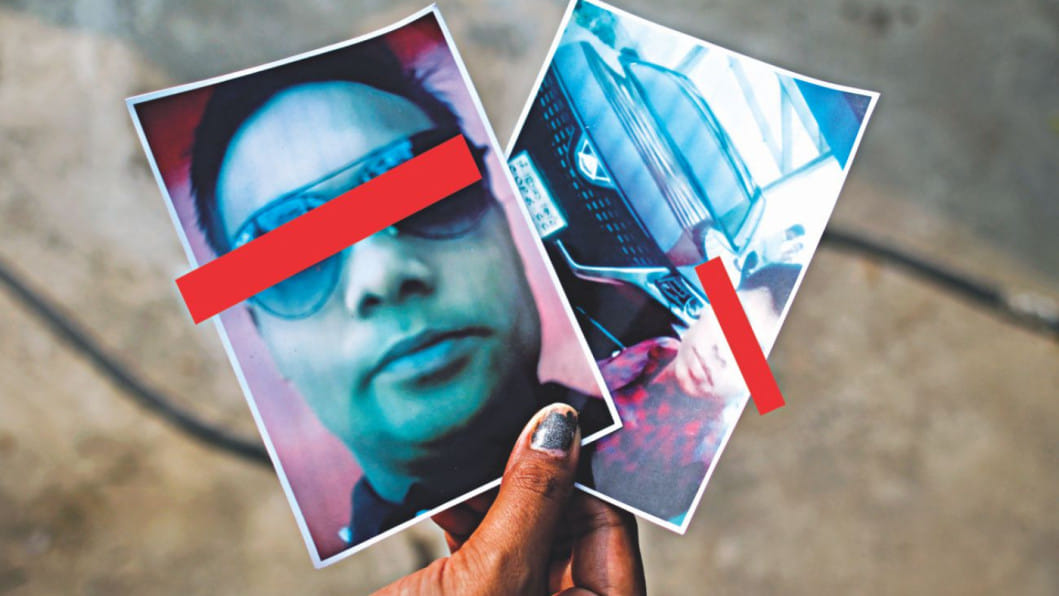The Burden of Proof
While most women who have undergone sexual abuse hide behind anonymity for fear of social reprisal, dance student Priyanka Rani Devnath emailed all the news organisations and called a press conference to talk about the violence she had undergone.
It was a modest affair—she booked a tiny, dusty conference hall in a crumbling old building in the general vicinity of the Press Club, sat behind a worn-out desk and laid out all her case papers. In a bag, she had the clothes she was wearing when she was sexually abused.
A small all-male journalist group piled in. Two set up their cameras without a word, shone the light on her face, and started rolling. She started her story, visibly shaking.
"I was in a car with my friend Brishti* and two of her male friends when I was raped," she said before hastily adding, "but they couldn't get it in."
"Then how was it rape?" asked a journalist.
"I mean, they used other things like their fingers," she replied, "So yes, I guess it wasn't rape?"
"How did it happen?" asked another journalist. Priyanka launched into a painful recollection of how three men raped her—or attempted to, as per the legal definition (which still insists that only penile penetration constitutes rape)—in a car on the 300-feet-road that leads to Purbachal a month back. The narration was interrupted by questions about the usual when-where-how-what details. She did not have a speech ready—and was simply winging it extempore. She often went on tangents as she thought out aloud to herself, annoying the crowd.
"You're not coherent. Nothing is making sense. Can you look straight at the camera and tell us what happened to you?" asked a journalist. Priyanka nodded vehemently and then started again, her voice choking at intervals.
The press conference was painful to watch. It was painful to see her trying to "prove" that she was raped. At one point, she got so agitated she stood up, lifted her top slightly and showed the scar the men had left on her stomach. "This happened when they yanked the pants' zipper and it burned into my skin."
In another moment, she said, "Look, yes I was wearing a jeans and a top, but it was very loose okay? I'm training to be a model and my trainer always tells me to wear loose clothes because I am not thin enough…" She went off on a tangent again. The journalists looked thoroughly confused.
When all the men left, Priyanka broke down in sobs. The press conference was not the first time she has had to tell her story and try and prove that she was sexually abused—in a Sisyphean routine, she has had to go through this again and again, at the police station, at the hospital, at the police station again, and to people she is going to for help.

The nascent #metoo movement in our country has not seen too many women come forward with allegations of sexual violence and harassment anyway, but the few that did do so are now finding the burden of proof being placed upon them.
"Where's the proof?" and "Why post on Facebook instead of telling the police?" are the two most commonly repeated questions that are being asked to the survivors who are coming forward right now. Put forth as critiques of the movement, these questions, in reality, display an utter lack of understanding of how sexual harassment happens, and the redressal systems women have at their disposal to get justice.
"We are working with the government and taking steps to ensure that women cannot make allegations on social media without proof," says Shahidul Islam Bizu, managing director of Pathak Shamabesh Centre, who was accused by a former job-seeker at his organisation for sexually abusing her during a meeting. In a Facebook post, the accuser detailed the particulars of the exchange, describing how, and under what circumstances, the alleged harassment happened. When asked what kind of proof should ideally be presented when making allegations of sexual abuse, Bizu said that he is not interested in discussing this case further.
Sexual abuse does not happen in the presence of eye-witnesses and all allegations are essentially one's word against another's. According to the claims put forth on social media, Asmaul Husna was abused in a completely empty street after dark, and Alpha Arzu was abused in the backseat of an office transport, that too, when it was completely dark. Tashnuva Anan and Prioty were engaged in one-to-one meetings with their accused perpetrators when they say the incident happened.
The burden of proof being on the woman is also exactly why it is difficult to report cases of sexual abuse of all types, stopping short of rape. Medical evidence still largely relies on testing the victim for semen, and in the absence of physical, tangible proof like that, sexual abuse is hard to verify. Where verification is difficult—so is legal redress.
It has been an uphill battle for Priyanka, from the moment she decided she is not going to keep quiet. The reason is simply this: because she was not raped via penile penetration, she is not victim enough. Her story demonstrates just how difficult it is for women to get any justice for sexual abuse, assault or harassment under current legal systems—and also sheds light on why women are choosing to post on Facebook instead. And this is why we are choosing to tell her story, to take our readers on the journey of a woman trying to get justice for sexual abuse.

The clothes that cause rape
"I didn't even recognise you! You were wearing a shirt and pants so you looked different when you came in that day!" exclaimed Qamruzzaman, the Officer-in-Charge of Bhatara Police Station, when Priyanka reintroduced herself to him. All this happened in front of this correspondent last week, when Priyanka went in to check on the investigation.
She was wearing a kameez with jeans and carried a scarf—garments that were hardly different from what she was wearing when she was sexually abused. While being a seemingly normal statement, it made Priyanka wonder whether he was blaming her clothes for her rape, because she stumbled to reply, "I had left my scarf in the car when all of that happened."
"Why do you get into cars with unknown men?" he asked Priyanka. "I was with a friend," Priyanka mumbled, but the senior police officer interrupted her to launch a diatribe about how young women should know better than to get into cars with men.
This is the police station that Priyanka had first sought help in, right after the incident.
Her rapists had let her go opposite Hotel Regency, after they realised they were being unable to do further damage. Before letting her out, they threatened to kill her if she told anyone. It was 12:30am at night.
With blood pouring down her face, she hailed a CNG. "I was not crying or anything. I was completely quiet," she describes.
She approached the police box in front of Bashundhara Gate, and was taken into Bhatara Police Station. "I told them I was raped, so they called my mother to the police station. The duty officer heard my story and asked me whether I wanted to file a general diary. I said I wanted to file a case," remembers Priyanka.
"Then they tried to discourage me from doing that because word would spread, my name would be in the media and I would not be able to get married," claimed Priyanka. They did not let her file a rape case because under the current law (The Prevention of Women & Children Repression Act 2000), hers falls under "attempt to rape". As per the law her perpetrators can get a maximum of only ten years in prison, while those accused of rape are given life sentences. To Priyanka though, whether they raped her using their sexual organs or their fingers, didn't matter—the trauma was the same.
She filled out the case documents and was told that she would need to be taken to the One-Stop-Crisis Centre in Dhaka Medical College Hospital for which she would have to wait until the morning. "I sent my mother home because my brother was alone at home, and he is disabled. Then I spent the night sitting upright on the waiting-area couch waiting for morning. The police officers told me I could sleep on the couch if I wanted to, and I was extremely tired and sleepy but dared not close my eyes because I did not feel safe in the public waiting area," says Priyanka.
She claims that even at the hospital she had to hear comments about what she was wearing when she was sexually abused. "When I first checked into the hospital, I was asked what happened to me, and I said, rape," she says. As she waited, an ayah observed her clothes and said, "If people wear clothes like this, then it is entire possible for them to be raped."

The "investigation"
The biggest barrier to justice for cases of sexual abuse excluding rape is the forensics' inability to find concrete evidence. Similarly, Priyanka's real disappointment happened when she wanted to get a DNA test done to gather medical evidence for the case she just filed.
"They told me since there was no sperm, a DNA test will be inconclusive and would only harm my case," states Priyanka. No offer was made to check her clothes for other types of secretion like sweat.
"If they checked, they could have found something," says Priyanka, "and even the nurse inspecting my jeans commented on how it reeked of a bad odour." She still has the clothes, and has left them unwashed, hoping that they will come of use in the future.
As of right now, the only real evidence she has is the scar left by the pant zipper burning into her skin—it is an inch in diameter, round-shaped and almost looks like a blooming rose—but it is hardly damning because that scar could have been made by anything. She left the hospital without any failsafe evidence that can help her case.
Priyanka claims that because she was not a rape survivor under law, her investigating officer (IO) was not taking her case seriously. He was a male, to begin with. "I felt uncomfortable discussing the particulars of the case with him."
She also says that he kept flirting with her. "'We are friends, right?' he said suggestively once. 'You are only making me do work as your investigating officer,' he said another time. I replied back to him by saying that he is my investigating officer, so how else should I see him?" states Priyanka. He would call her at odd hours to ask extremely personal questions beyond the scope of the investigation.
"One time, he asked me to go with him to point out the place where it happened. So, I climbed on his motorbike behind him. The vehicle jerked a bit and I instinctively put a hand on his shoulder to steady myself. He then asked to sit closer and to 'get comfortable'. The situation made me feel extremely vulnerable," claims Priyanka.

It got so bad that she stopped receiving his calls for two straight weeks, thereby hampering the investigation.
When OC Qamruzzaman was asked by this correspondent about how the investigating officer assigned to Priyanka's case was flirting with her, he, to his credit, responded by immediately replacing him with a female officer.
"She is a female officer, so don't pressurise her too much about catching the perpetrators, okay?" the OC told Priyanka when making the switch.
Then, in a bizarre turn of events, the new IO then asked her to go find out where her abusers live. "Once you find their homes, I will go in with a team," promised the new IO. While her gender was more comforting to Priyanka, the new officer also shifted the responsibility of finding the perpetrators on the victim herself.
Priyanka spent last Friday roaming around Khilkhet looking for the address of her abusers. "I searched the entire day today, but I could not find it!" she said to this correspondent in frustration. "Can't the police find them by tracking their phones or something?"
This is where the story stands now—and there is no end in sight, as of yet. The survivor has gone from place to place looking for help, seeking justice, without any guarantee that she will be getting it. She followed all due processes, but there is no hint of a resolution happening any time soon.
"Will my abusers ever be caught? What is the point of living like this?" wonders Priyanka.

 For all latest news, follow The Daily Star's Google News channel.
For all latest news, follow The Daily Star's Google News channel. 






Comments